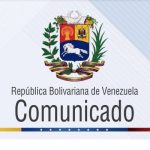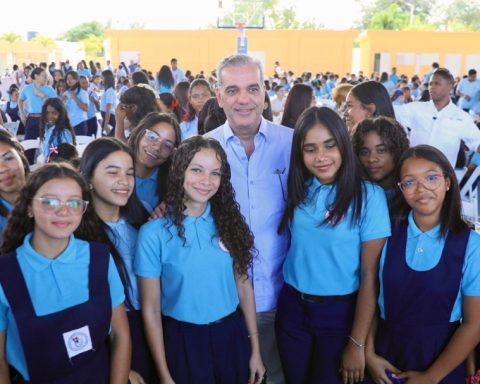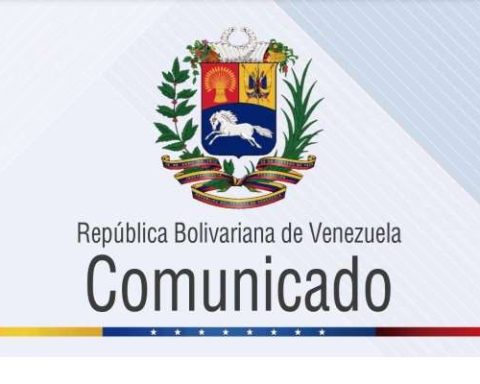The worst threat to governance in Latin America, and also in Chile, is organized crime. And when it comes to organized crime, it’s not just about drug trafficking. By the way, drug trafficking is, but it is much more than that: it is a focus of crimes and complex criminal prosecution. This, because in addition to involving violent gangs, corruption of the police, of judges, murders and liberated neighborhoods, corrupt prisons, in addition to an almost uncontrollable pandemic of violence, organized crime is also broader and more subtle. It involves complex financial networks, money laundering, the use of cross-border digital systems, and it infiltrates the political and social body as corruption. In its detection, financial investigation, control of transport systems and digital communications are essential. Intelligence more than strength, because the hard information on drug trafficking is also there.
Last week in Chile was marked by tense political-legislative activity on police security, and by the third murder of a police officer in the line of duty in less than a month. A before and after in the security crisis that the country is experiencing. At the political level, it led to an open crisis of the ruling party, with transversal agreements between opposition forces and supporters of the Government, as well as an explosion of citizen solidarity with the Carabineros police, which narrows the capacity for official political maneuver.
Social pressure persuaded the forces of the ruling party and the Executive itself to agree to an agreement in Parliament on legal modifications that, although they are not the solution to the institutional problems that overwhelm the security sector, at least imply a confidence boost that it is possible to work together and that it is not too late to make amends.
But the country must also focus on a longer-term reflection that provides certainty on the matter. And temperance must prevail, an essential quality that policy managers must exhibit in times of crisis, which leads to acting with prudence, moderation and rationality, to satisfy the purpose of the public good pursued by the State, as a moral person that is . Because when the rulers surrender to the satisfaction of their individual interests, the States become bankrupt and the institutions lose logical consistency and legitimacy. It is useful to remember this, since the period that is opening could be paradigmatic for the future of the country.
The valuable willingness of the Public Treasury to inject significant financial resources to strengthen police operations and deal with the wave of insecurity and crime, should not overlook the fact that the current situation has not come about suddenly. And that it is not only a matter of technological endowment, firepower or number of officials, but also of design and organization, something that the institutional High Command of Carabineros has been reluctant to improve. For more than ten years there has been a clear record of the permanent increase in violence and blood crimes in the country, with armed gangs and hitmen, and our Carabineros police continue to act practically the same, with the same procedures as before, without improving them. nor adapt them. Of course, this is also the responsibility of the civil power –successive governments, of different political colours–, on which said institution depends.
An example: Carabineros still do not have SWAT tactical training, which is purely police (not military), and which has been applied in almost the entire world since the 1960s. Developed primarily in Los Angeles (USA), the SWAT approach implies a technical bridge between close manning and patrolling, with the highly complex operation of a police force in the modern State. This approach does not prevent deaths, a risk inherent to the profession, but it reduces them and makes the police more efficient.
To make matters worse, instead of differentiating police and military security functions, the Chilean State has insisted recently on mixing them.
The changes in the global security scenarios, particularly with regard to the action of organized crime, and the wide development of complex crimes in certain territorial environments, or processes such as migration, cannot be dealt with effectively if there is no intelligence. proper strategy. This affects the quality of the means of force that is selected and the designs of units required. At this very moment, although it sounds absurd, there is a public alert regarding the fact that in the Ports of Antofagasta, San Antonio and ZEAL of Valparaíso, there are a total of 8 scanner trucks that are not operating or obsolete. Meanwhile, the UN, in an annual report, has declared San Antonio a red port for drug trafficking (which has no working scanner).
In the case of migration, many of the criminals who infiltrate them come from countries with high lethality due to police action, such as Venezuela and Colombia, so they are criminals seasoned in violence. This exposes both policemen without tactical training and labile prison systems, based on perimeter control of the premises and not on segregation and high-security rigor. In this context, it is not clear if the National Prosecutor’s decision to instruct prosecutors to request preventive detention for undocumented foreigners is a measure “for the gallery” or, really, has a technical and legal basis, and if it was previously discussed with the Ministries of Justice and the Interior, as well as the Judiciary –many more questions arise, for example: are there adequate and sufficient places of detention?–.
It is true that prompt and concrete actions are required (always within the law) as soon as possible, but a systemic, multisectoral approach is also needed, led by a responsible public authority, even if this takes a little more time.
In this scenario, it is essential to have the support of the civilian population, since the police are a substantial part of the traditional protection of civil liberties, such as personal, political, economic and expression freedom. Therefore, the police cannot become corporatized neither in the discretionary use of their institutional funds nor, even less, in the infringement of fundamental spaces that they are called upon to defend, such as freedom of the press and information. In this sense, and despite the solidarity that the institution of Carabineros de Chile deserves for the sensitive deaths of members of its ranks, this media does not agree at all with the outburst of General Álex Chaván, who vetoed participating in a press conference to a TV journalist for the mere fact of having used “on the air”, in an obvious linguistic lapse, the colloquial concept “paco” -for which, moreover, the professional immediately apologized, also “on the air” –.


















